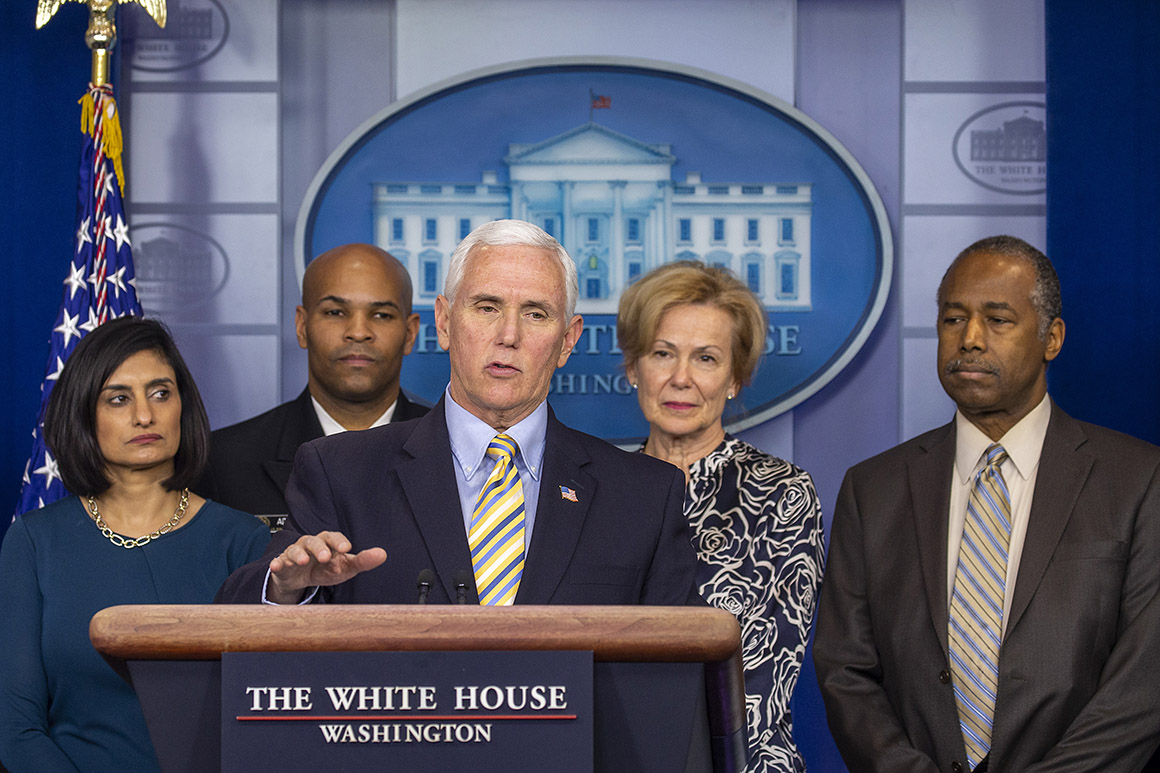
Trump had announced the project during a Rose Garden address Friday afternoon, saying that for people who may have coronavirus symptoms, the website will help „determine whether a test is warranted and to facilitate testing at a nearby convenient location.“ Trump added that „we have many, many locations. … We cover this country and large parts of the world.“
But later on Friday, Google tweeted a statement from its life sciences affiliate, Verily, that described the project as having a more modest scope, at least initially. „Verily is in the early stages of development, and planning to roll testing out in the Bay Area, with the hope of expanding more broadly over time,“ said the company, which is owned by Google’s parent, Alphabet.
Google appeared to walk that back Saturday night by posting a Twitter thread much more consistent with the White House’s description: „Google is partnering with the US Government in developing a nationwide website that includes information about COVID-19 symptoms, risk and testing information,“ it wrote, adding that this was in addition to „Work being done by our sister company Verily to launch a pilot website that will enable individuals to do a risk assessment and be scheduled for testing at sites in the Bay Area.“
Google was also taking steps such as „[p]romoting authoritative information through Google Search and YouTube“ and weeding out „phishing, conspiracy theories, malware and misinformation.“
Neither Google and Verily responded to attempts to reconcile their various statements with the administration’s accounts.
Dr. Deborah Birx, the White House coronavirus response coordinator, said Saturday that the site will incorporate „everything they have learned about symptoms and screening“ for the virus.
„It’s not just a simple checkbox website,“ she said. „It’s actually going to go through critical symptoms, and that’s why we’re giving ourselves the weekend to get it put up.“
Friday’s announcement instantly raised red flags among patient privacy groups, which have pushed for greater scrutiny of Google’s use of health data. Google recently came under fire over a deal with Ascension Health that grants the tech giant access to millions of patients’ identifiable medical information. While Google contends the deal complies with federal privacy protections for health data, a Wall Street Journal report on the deal triggered an investigation by the HHS civil rights office and landed the company in the crosshairs of congressional privacy hawks.
“It sounds like @Google just figured out how to get the personal health data of every single American,” tweeted Kyle Plotkin, chief of staff for Sen. Josh Hawley (R-Mo.), after Trump made the announcement. Sens. Elizabeth Warren (D-Mass.), Bill Cassidy (R-La.) and Richard Blumenthal (D-Conn.) have demanded answers from Google and Ascension.
Marc Rotenberg, president and executive director of the Electronic Privacy Information Center, said it’s critical for consumer privacy that Google doesn’t gather any personally identifiable information from the coronavirus website, and that it shouldn’t keep IP addresses or use any other “covert tracking techniques.”
The White House has sought the tech industry’s help bolstering its response to the expanding outbreak. U.S. Chief Technology Officer Michael Kratsios held a conference call Wednesday with representatives from large tech firms, including Google, Facebook and Amazon, to discuss their efforts to combat coronavirus-related online misinformation and ways artificial intelligence could be used to analyze medical research on the virus.
“Cutting-edge technology companies and major online platforms will play a critical role in this all-hands-on-deck effort,” Kratsios said in a statement after the call. “Today’s meeting outlined an initial path forward and we intend to continue this important conversation.”
Mohana Ravindranath, Darius Tahir and Steven Overly contributed to this report.
Source: politico.com
See more here: news365.stream






